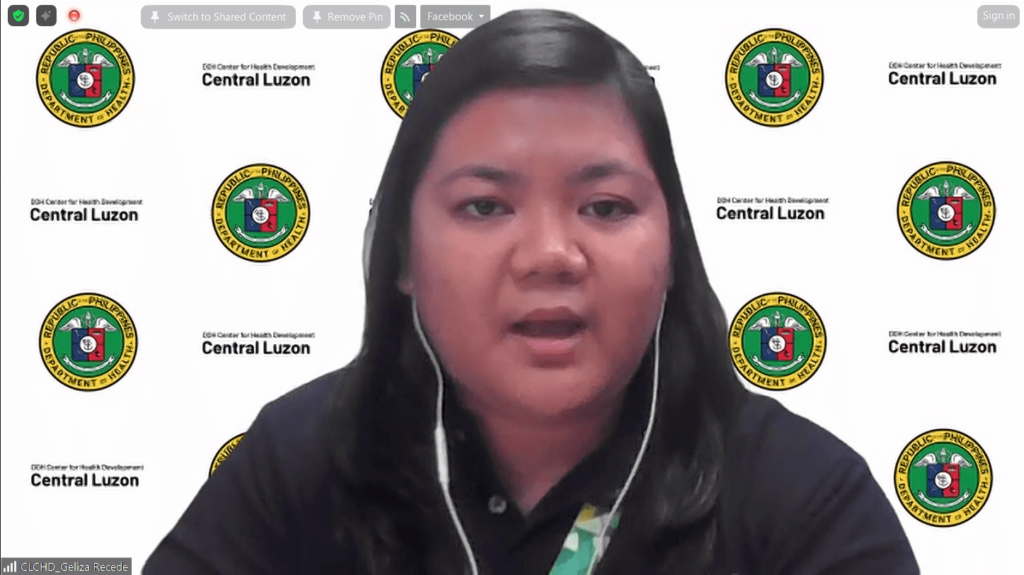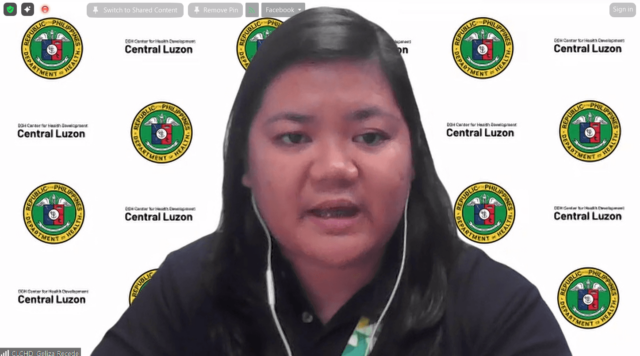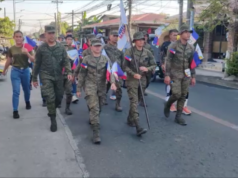CABANATUAN CITY (PIA) — The Department of Health (DOH) is encouraging Central Luzon residents to know their human immunodeficiency virus (HIV) status.
HIV counseling and testing are available and free of charge at health centers, rural health units (RHUs), and HIV treatment facilities under the government.
DOH Central Luzon Center for Health Development HIV Program Manager Geliza Recede said early testing and detection is important to protect oneself from HIV and acquired immunodeficiency syndrome (AIDS).
“If an individual is a bit hesitant, they can go to HIV treatment facilities, health centers or contact them through online or social media pages,” Recede added.
There are about 34 designated HIV treatment hubs and primary HIV care facilities in Central Luzon including the Maria Aurora Community Hospital in the province of Aurora; and Bataan General Hospital and Medical Center, Jose C. Payumo Jr. Memorial Hospital, and Mariveles Mental Wellness and General Hospital in the province of Bataan.
Bulacan residents may visit City of San Jose del Monte Primary HIV Care Clinic, Guiguinto RHU II Primary HIV Care Clinic, Meycauayan City Primary HIV Care Clinic, R.E. De Jesus Multi-Specialty Clinic and Diagnostic Center, RHU 1 Marilao Bulacan, Usbong ng Bulakenyo Incorporated, Allied Care Experts Medical Center-Baliwag, Bulacan Medical Center, and Healthway QualiMed Hospital San Jose Del Monte.
These services are likewise available at Dr. Paulino J. Garcia Memorial Research and Medical Center, Guimba Community Hospital, Nueva Ecija Medical Center Inc., Premiere Medical Center, Talavera General Hospital, and Angel Cares Medical Health Services in the province of Nueva Ecija.
In the province of Pampanga, there is the Family Planning Organization of the Philippines-Pampanga Chapter, Mabalacat City RHU II Reproductive Health and Wellness Center and Primary HIV Care Clinic, Regional TB-HIV Support Network Incorporated, Apalit Doctors’ Hospital, Incorporated, Jose B. Lingad Memorial General Hospital, The Medical City Clark Hospital, and Angeles City Primary HIV Care Clinic.
In Tarlac, residents may visit Moncada RHU 1, Myrna’s Cafe Health Service Cooperative, Concepcion District Hospital, and Tarlac Provincial Hospital.
And lastly, anyone can get tests and treatment at the President Ramon Magsaysay Memorial Hospital, San Marcelino District Hospital, and James L. Gordon Memorial Hospital in the province of Zambales.
Recede said there are also self-test kits available at these treatment facilities, but it is still important to have counseling and guidance in the correct self-testing process.
In this regard, she emphasized the importance of regular checkups for early detection and treatment to improve the quality of life of Persons Living with HIV (PLHIV).
The effect of not immediately detecting HIV infection is lowering the body’s immune system, which can lead to AIDS and opportunistic infections or other diseases.
“Although there are cases of AIDS that they can still experience normal life, we do not want PLHIVs to experience having AIDS, so as early as now if you know there is an exposure, find out your HIV status immediately,” Recede emphasized.
She said there should be no fear of knowing the status because regardless of the result, there are ways and activities to help oneself.
Having awareness is very important to the health of an individual, specifically knowing the ways to avoid getting HIV as well as taking steps to prevent infection.

HIV is transmitted through unprotected sex, using needles that have been used by others, transfusions of contaminated blood, and mother-to-child transmission.
Recede said being aware of the correct information about the disease will help to stop discrimination or stigma against PLHIV who are not contagious through their sweat, saliva, and cough.
Currently, there is no cure for HIV but there are treatments like antiretroviral treatment or therapy.
DOH always campaigns abstinence or avoiding sexual intercourse, being mutually faithful to your partner, correct and continuous use of condoms, and pre and post-exposure prophylaxis to prevent getting HIV.
Recede reported that throughout Central Luzon, the diagnosed cases of HIV reached 13,202 as of December last year.
The province of Bulacan has the highest number of cases, with 4,563 cases, followed by Pampanga with 3,782 cases, and Nueva Ecija with 1,671 cases. (CLJD/CCN, PIA Region 3-Nueva Ecija)





